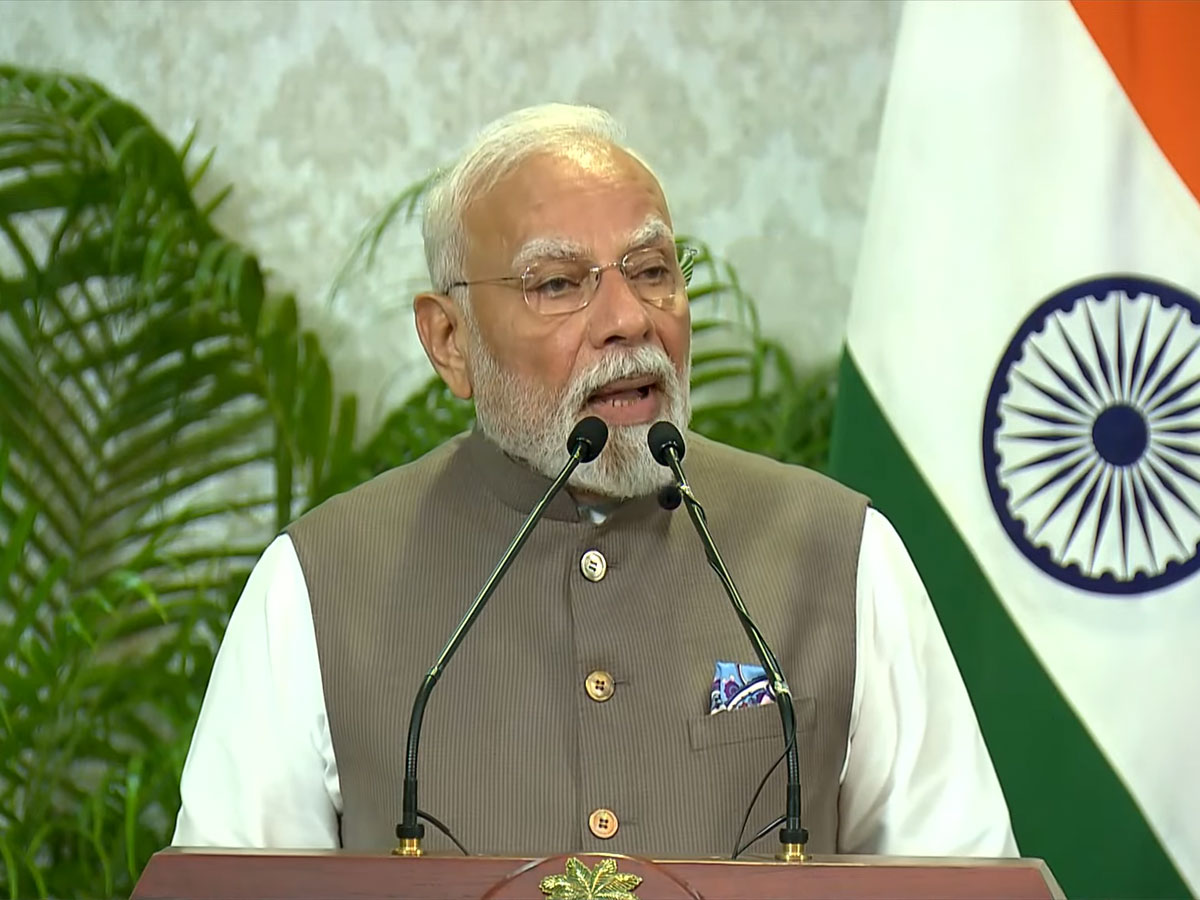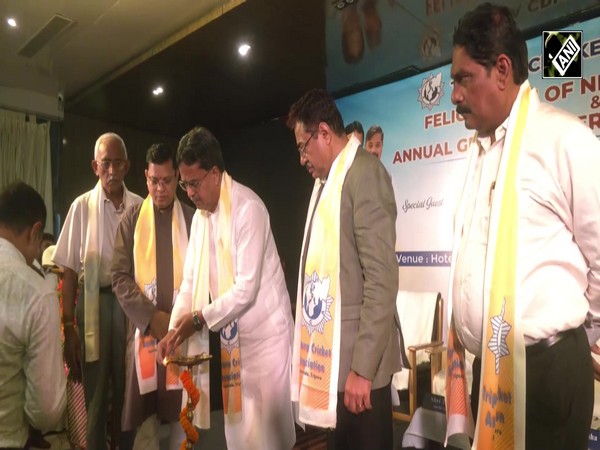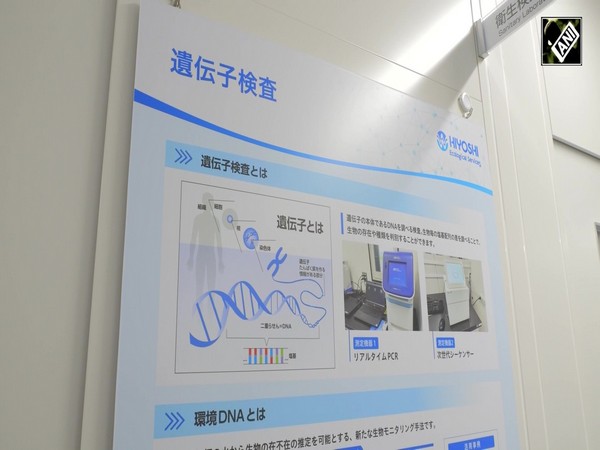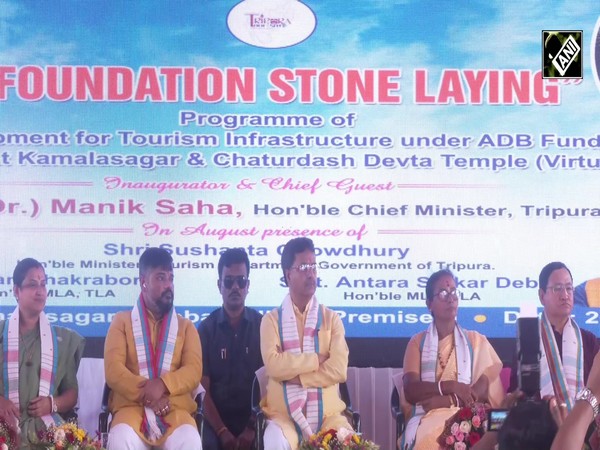Legal Curriculum Redesign for a Digital World - BML Munjal School of Law and Vahura Study
Jul 02, 2021

Gurugram (Haryana) [India], July 2 (ANI/NewsVoir): BML Munjal University (BMU) School of Law and Vahura, a leading legal search and consulting firm announced the findings of a first of its kind study titled "Legal Curriculum Redesign for the Digital World" on July 1, 2021 at the annual law conclave hosted by BMU virtually.
The study sets out to capture how legal education can better prepare young lawyers for the digital world in the rapidly transforming digital/legal environment in India. Commissioned by the BMU School of Law, the study informs the existing law schools that there is a pressing need to redesign their curricula in view of changes brought about by technology to the practice, and substantive nature of the law; and lays out how such redesigning should take place to tackle and navigate both these changes in an effective way.
Key findings:
How the law school curriculum is falling short of expectations
Why Legal curricula should be redesigned so that is aligned with the impact of technology on both the legal profession, and the world at large
Law schools must foster a spirit of inquiry or at the very least not discourage inquiry
The study also highlights why there is a need for better collaborative engagement between law schools and other key stakeholders in structuring curriculum and pedagogy
The report throws light on introducing foundational courses on technology that should be introduced early in the undergraduate curriculum
The objective of this study has been to diagnose and define the gap, and formulate effective ways in which law schools can, by way of a restructured curriculum and pedagogy, bridge this gap. BMU & Vahura explore the role of law schools and their curricula in preparing 'digital native lawyers', i.e. lawyers who are at ease with the digital world, and who are moulded by such a digital world, thus demonstrating an instinctive understanding of technology and its impact on the processes and institutions of present day society.
More particularly, this study proceeds on the hypothesis that existing law school curricula falls short in this endeavour; it identifies the need to redesign such curricula, in view of changes brought about by technology to the practice, and substantive nature of the law; and lays out how such redesigning should take place.
The study also brings to the fore that technology affects legal practice in the following ways: (i) Changes to the delivery of legal services. Examples include design-approach to legal documents; smart contracts; practising before an AI powered commercial court, etc; and (ii) Policy, legislative and regulatory changes across industries impacted by technology. Examples include encryption technology and its regulation, resulting in legal issues related to data privacy; commercial and industry specific changes triggered by technology. Accordingly, legal practitioners must be equipped with the relevant knowledge and skill sets required to tackle and navigate both these changes in an effective way. Wherever this knowledge and these skill sets are not effectively inculcated by law schools, there is a glaring gap today.
Majority of the experts confirmed the existence of a gap between what young lawyers are taught at law school and what is typically expected of them in this digital world.
Some of the key takeaways from this study are:
Law School Curriculum redesign is a must in a world that has been dynamically and irrevocably altered as a result of its impact with technology, and will continue to rapidly evolve in the years to come.
Developing a curiosity, an appreciation, and a fundamental understanding of technology, and how it shapes and impacts social and economic activities is a key role for Law Schools moving forward. It is important to help students navigate the impact of the interplay of technology with social and economic activities - both at present and in the future..
A mandatory programme on technology studies in the context of its historical, social and economic development and impact is therefore the need of the hour for law schools, particularly to inculcate the above-mentioned appreciation for, and understanding of technology.
Further, Law School Curricula must integrate a technology context to the delivery of other legal courses, by way of case studies or legal clinics that involve deliberation and defence of legal rights and issues in technological context.
Foundational courses on technology should be introduced early in the undergraduate curriculum, with options for electives on more specialised law and technology courses, and other relevant co-curricular and extra-curricular learning modules available to students in the later years of the undergraduate programme. Additionally, post-graduate and executive education programmes may feature more technical and specialised courses on law and technology.
Greater collaborative engagement between law schools with other key stakeholders in structuring curriculum and pedagogy is required to ensure effective legal education in the digital world. Illustratively, such collaboration must happen between law schools (representing the academic perspective), and key stakeholders like practising lawyers (who understand legal practice in key sectors being redefined by technology, and the regulation of technology itself), in-house counsels (who represent companies and private stakeholders in the digital world), policy experts (who understand the dynamics of the interplay between law and social and economic activity across sectors), and technologists (who understand technology, its role and impact).
Law schools must lead research and scholarship on key intersections of technology and the law across sectors, thereby creating more opportunities for effective learning for students, and training of faculty for the purpose of effectively discharging legal training.
Going beyond the classroom, law schools should foster an ecosystem that promotes exploration, self-learning and real world experiences. This can be done by way of encouraging activity groups, open labs and special competitions.
Dr. Nigam Nuggehalli, Professor , BMU's School of Law, while launching the study said, "I congratulate both the teams on the initiative. The study identifies the gap in the curriculum of legal education. As per the BMU-Vahura surveys, a majority of respondents foresee an increasing use of digitization and legal technology over the next 10 years. It is, therefore, critical to construct a curriculum that is aligned with the impact of technology on both the legal profession, and the world at large. In this sense, our primary aim is to shape young legal professionals that are ready for the future."
Speaking about the report, Ritvik Lukose, CEO, Vahura said, "We live in a digital age, where the legal system is increasingly grappling with issues that are fundamentally being transformed by technology. Whether it is AADHAAR, encryption, data privacy or cryptocurrency, the interplay of technology, policy and the law, lies at the heart of these public law issues. Young lawyers are also graduating into a workplace where legal tech is taking on many of the mundane tasks that they would formerly be trained on. This report does provide a way forward for educators, on steps that can be taken to redesign legal education, to better prepare our students for this digital age."
The outcome of this study has been, technology is all-pervasive, the digital world is quite simply, our world today. In bringing about these changes, that law schools must fundamentally take up a flexible, collaborative, and integrated approach to reshaping curriculum since neither law nor technology exist in silos, and therefore neither of the two can be taught in silos - something that unfortunately happens today, contributing tremendously to the "gap" issue. Reformat the structural level is important, and collaboration with key stakeholders from the very beginning of any endeavour towards restructuring legal education is integral for the success of this program.
Study methodology
BMU undertook this qualitative study in June 2021. The study was conducted by Vahura by way of interviews with 20 (twenty) leading experts and pioneering professionals working at the intersections of law, policy, and technology from India and overseas.
The BML Munjal University's School of Law currently offers undergraduate integrated degree programs of B.A., LL.B. (Hons.) and B.B.A., LL.B. (Hons.). The two programs offered at School of Law are in adherence with the latest Bar Council of India Rules and University Grants Commission Regulations.
The School of Law offers a five years integrated LL.B. programmes designed to not only enhance knowledge but also instill in students a skill-based grounding in the subjects needed to excel in legal practice.
These programmes seek to develop a sense of curiosity amongst students to understand the finer nuances of law, apply legal concepts to complex commercial issues and be able to clearly articulate the solutions to these problems both verbally and in writing. In a fast-changing world, legal issues require an interdisciplinary approach, therefore these programmes aim to develop lawyers with a holistic understanding of the economic, political, social, and business landscape in which the law operates.
Vahura is India's leading legal search and change consulting firm. Vahura has pioneered legal recruitment in India and today, services clients across the APAC and MEA regions, for senior level requirements spanning legal, compliance, public policy, and tax domains.
Vahura's other offerings include Onboard - enabling professional boards through director search and consulting; Counselect - India's first legal secondment and flexi-work venture; ReLawnch - programs that help women return to the workplace after a break; and Navigator (
) - a career advisory platform that helps young professionals become recruitment ready. Vahura is also a founding partner of Agami - a platform to catalyse and scale transformative ideas in the areas of law and justice.
For more information, please visit:
;
and
.
This story is provided by NewsVoir. ANI will not be responsible in any way for the content of this article. (ANI/NewsVoir)




















